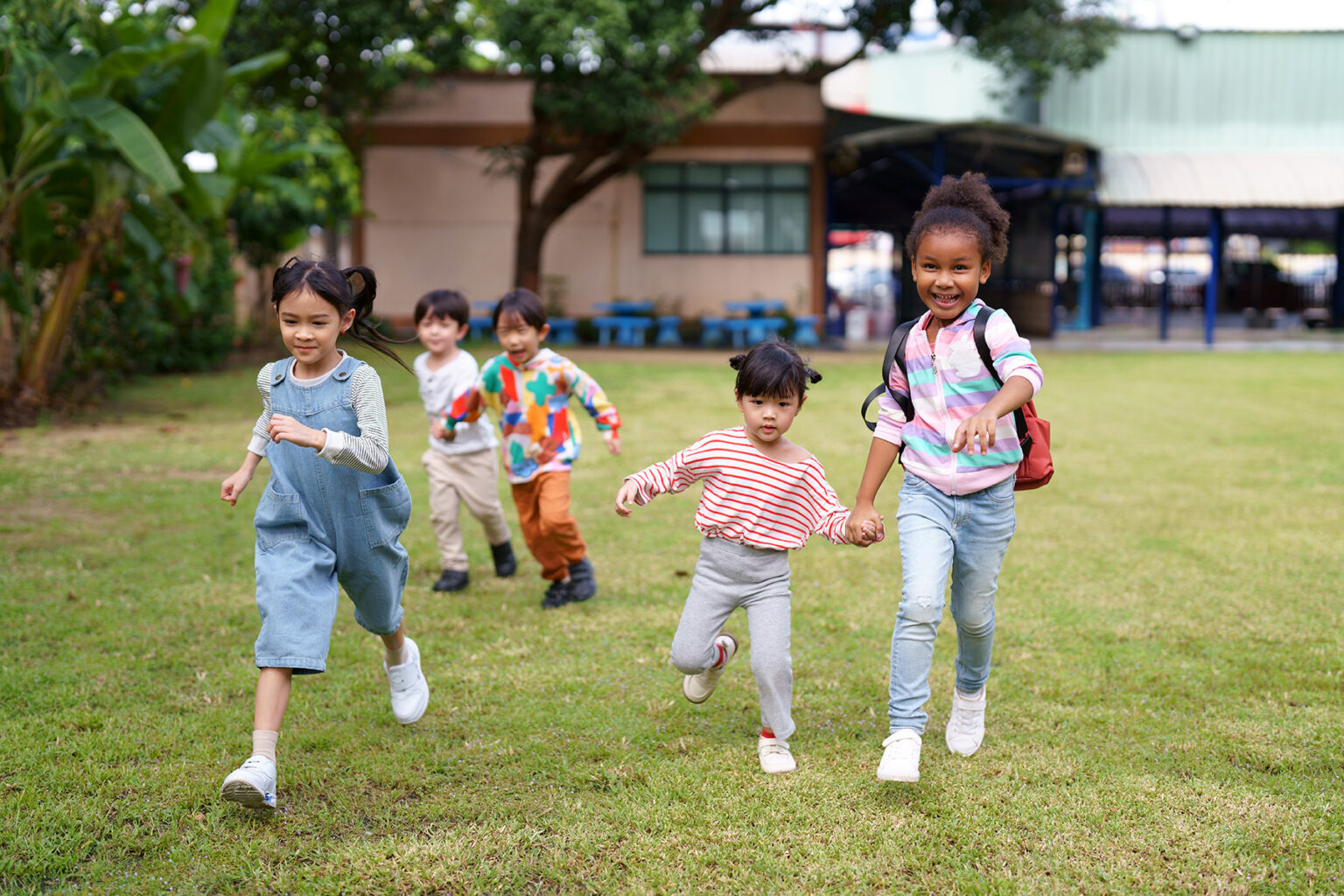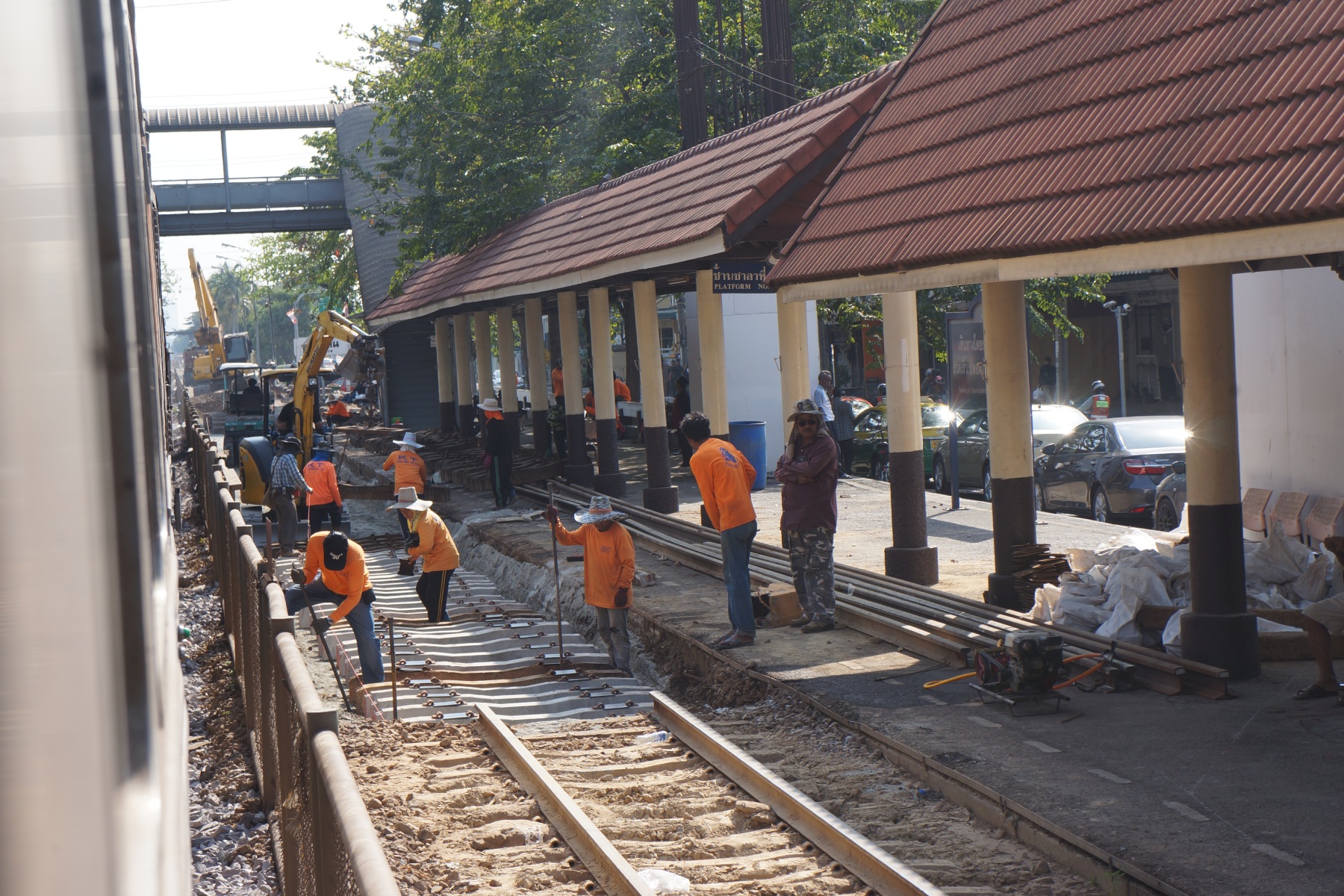Childcare is a key concern for working parents around the world, and Thailand is no exception. Luckily, there are plenty of options available, especially in the private sector.
Continue reading for more information on childcare in Thailand, including the following topics:
Childcare in Thailand
Thailand’s childcare system comprises a mix of informal baby care and formal educational childcare from age 3. The main types of Thai childcare are:
- Professional childminders – for children of all ages
- Nurseries and daycare centers – for children aged 0-6
- Kindergarten – for 2 to 3-year-olds
- Preschool – for children aged 3–6
- After-school care – for primary school children
It is common for parents and other relatives to take care of children aged 0–2. Thailand’s labor laws stipulate that mothers are entitled to 90 days of maternity leave at 50% salary, and fathers can take up to 15 days of paternity leave. As such, working parents who cannot afford to take more time off will often leave new infants with their grandparents or extended family.
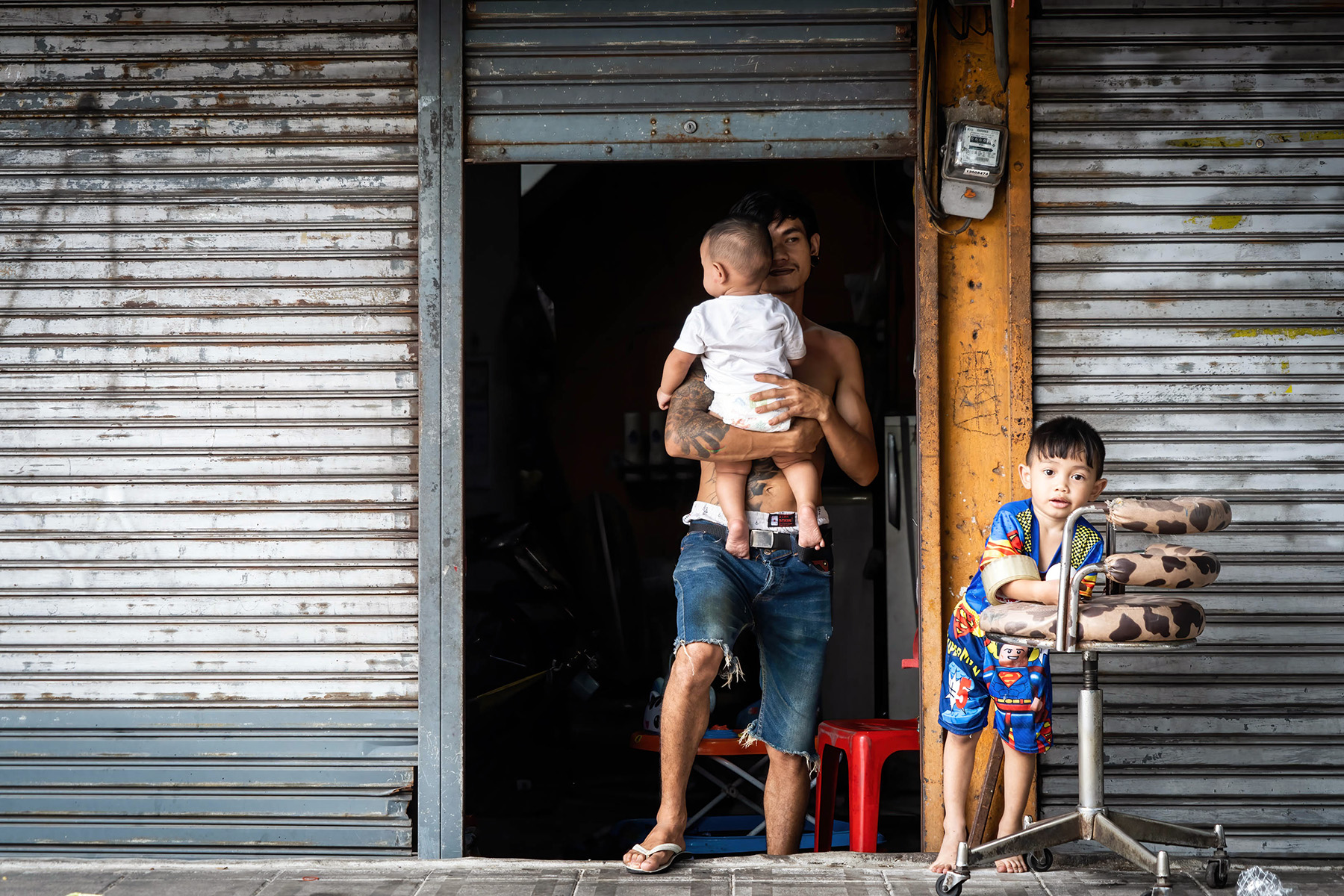
Children can attend preschool from ages 3 to 6. Every provincial capital has at least one public kindergarten or preschool that serves as a model for the private sector. However, since this level of education is optional in Thailand, the private sector has taken a more active role. According to UNICEF, approximately 85% of children aged 3–5 received some form of pre-primary education.
While some expats might feel Thailand’s childcare system is a bit limited, it’s worth emphasizing that the country offers free public education from ages 3 to 18.
The Department of Children and Youth is responsible for childcare services in Thailand. This is part of the Ministry of Social Development and Human Security.
Who can access Thai childcare?
Fortunately for expats, there are no specific requirements when it comes to accessing childcare services in Thailand. However, it is important to be aware that there may be language barriers or cultural differences.
Because Thailand’s early years childcare services are largely private, there are no general restrictions on access beyond your location and the ability to pay. For example, most private kindergartens are located in and around the capital and start from ฿15,000 per semester.
Preschools can generally set their own admissions requirements. Public schools often have limited availability and require you to live in the nearby area. While some state-run schools reserve their places for Thai nationals, others only ask that you have a long-term residence permit. Since childhood vaccinations are optional in Thailand, you won’t likely see this as a stipulation.
Preschools that are affiliated with particular primary schools usually require you to register your child with that next level of education as well.
International childcare in Thailand
Understandably, Thai is the default language used at childcare centers in Thailand. However, there are also numerous international care facilities where children can learn a second language (e.g., Chinese, English, French, Indonesian, Japanese, or Malay). These are often based in cities with significant expat populations, such as Bangkok or Chiang Mai.
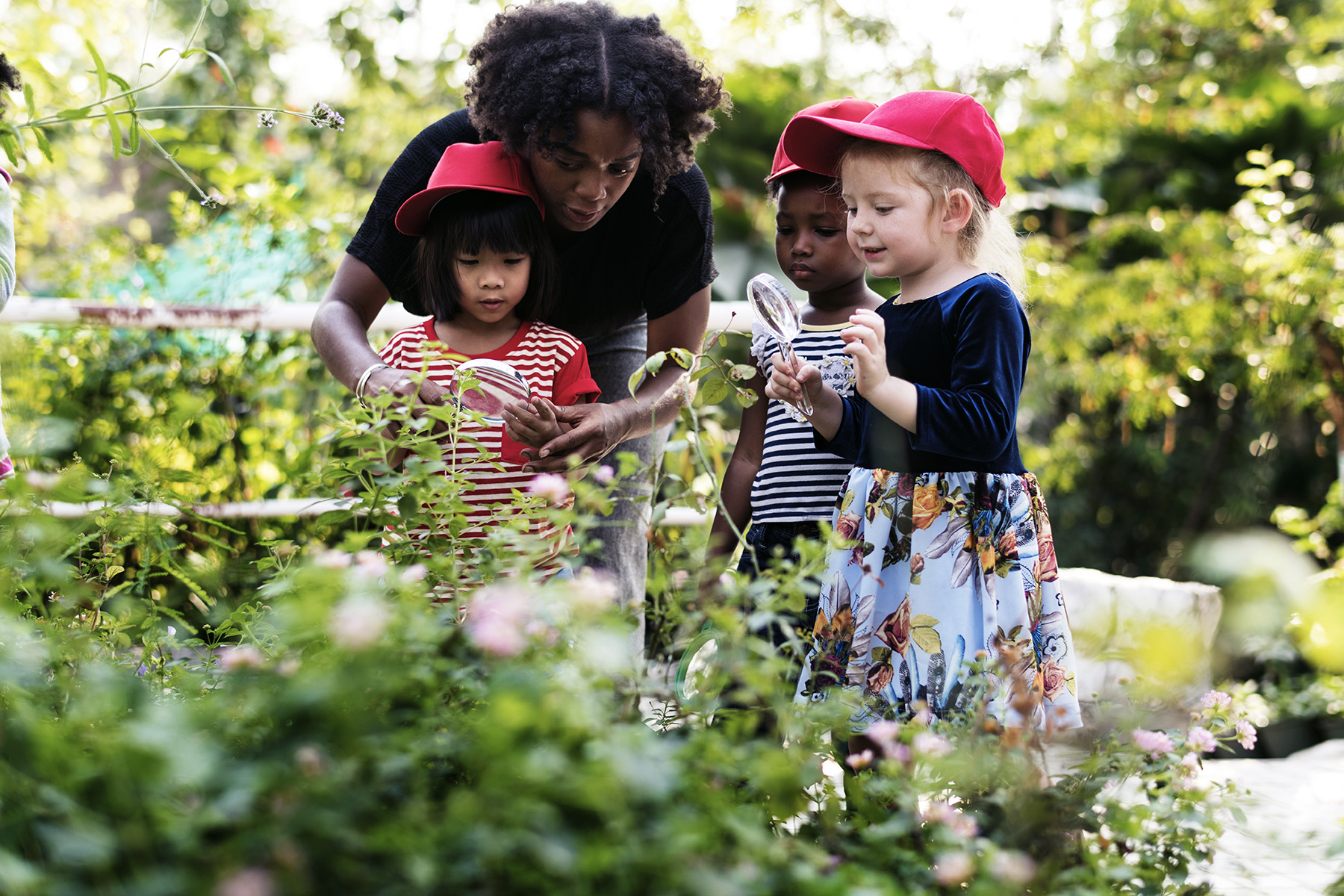
Here are just a few examples:
- Siam International School (American)
- Thai-Chinese International School (American and Chinese)
- Kensington International Kindergarten (British)
- École Française Internationale de Pattaya (French)
- Melodies International Kindergarten (Japanese)
While international childcare centers are usually more expensive, they also offer several benefits. For example, they allow children to develop in a more multicultural environment and learn a second or third language. Class sizes are typically smaller, and facilities are of a good standard.
What childcare options are available in Thailand?
Preschool and daycare
Children in Thailand start primary school (ประถมศึกษา, Prathom seuksaa) after their 6th birthday. Before that, parents can send their kids to group-care facilities, including nursery and daycare centers, preschools, and playgroups.
Nurseries and daycare centers
Nurseries and daycare centers accept infants as young as 3 months old. Most centers will care for children until they are 2–3 years old, although some look after older children until they start school.
Daycare centers typically focus on the child’s holistic development, emphasizing love and care. They offer play-based activities with some early-year learning (e.g., social skills and proper hygiene). Their daily schedule includes nap times and lunch or snacks.
Many nursery and daycare centers operate long opening hours, usually from 08:00 to 16-17:00. Some are also open on weekends.

Early years provision in Thailand is largely unregulated and underfunded. As such, most are operated by private and voluntary sector organizations (e.g., churches or mosques) that charge tuition fees. On average, families can expect to pay between ฿100,000 and ฿600,000 a year (2023). While some public preschools do include nurseries, places are minimal and usually reserved for Thai nationals.
Kindergartens and preschools
Kindergartens and preschools provide a nurturing and supportive learning environment for children aged 3–6. Some also take in 2-year-olds. Like nurseries and daycare centers, kindergartens and preschools offer play-based activities. However, they tend to place more emphasis on early childhood education to prepare the children for primary school.
Depending on the child’s age, they focus on further developing self-discipline, decision-making, and social skills. Older children will learn basic math and Thai language skills. Like with nurseries, the daily schedule includes nap times and lunch or snacks.
Kindergartens and preschools are typically open from 08:00–15:00, but many offer extended hours.
Private preschools can be costly, averaging between ฿200,000 and ฿600,000 a year (2023). While public preschools provide free education for Thai citizens and long-term residents, they often charge extra fees for books, materials, transport, and additional activities or classes.
Community playgroups
Playgroups are another informal childcare option in Thailand. They offer children a chance to play and socialize with peers at a community learning center, park, or other public space. Playgroups are typically geared toward children aged 1.5–2.5, often require at least one parent to be present, and run for shorter durations (e.g., just a few hours in the morning or afternoon).
They’re usually organized by parents or community groups, so provision can vary significantly across the country. Fees also differ. Some just want to cover running costs, whereas others offer more structured schedules. On average, 3–4 hour sessions cost between ฿250–1,000.
You can find a playgroup in your area by asking other parents, searching online, or checking with your local community center. The BKK Kids website also has a small directory advertising private playgroups in Thailand.
Childcare for school-age children
Before-and-after-school clubs
Public schools in Thailand don’t really offer additional activities before or after school. Instead, most school-going children will join sports clubs, take music lessons, hang out with friends, or do chores at the family home.

International and private schools do sometimes provide fee-based out-of-school-hours activities, for example:
- Breakfast clubs that take place before school starts
- Sports clubs (e.g., football, badminton, or sepak takraw)
- Arts-based activities (e.g., painting or ballet classes)
- Learning activities (e.g., homework clubs)
Activities typically occur on school grounds, either before (07:30/08:00–08:30) or after school (around 15:30–16:30).
If your child attends a school that doesn’t offer after-school activities, other private options may be available. Your child’s school should be able to advise you on what is on offer in your area.
Childcare during school holidays
Thailand offers several childcare options during school holidays, including holiday camps, summer camps, and daycare centers. These programs keep children engaged and allow them to pursue new hobbies, meet new people, and learn new skills.
Examples of Thai summer schools include:
Some international schools also host summer camp programs that focus on a specific topic, such as sports, music, arts, or chess. It’s therefore worth checking with the schools in your area to see what they offer during school vacation.
The costs of these programs vary depending on the length, activities offered, and location.
Professional childminders
The concept of professional childminders, like they have in the UK or the US, is very foreign to Thailand. While some self-employed childcarers do have professional training and work experience in childminding, they will likely advertise themselves as nannies.
Nannies
Nannies are common in Thailand, especially among expat families. They offer personalized childcare in the family home and typically perform a wide range of duties, including basic childcare, meal preparation, bathing and bedtime rituals, and helping with homework. Depending on their work schedule, nannies can be live-in or live-out.

There are currently no specific regulations or requirements for nannies in Thailand. As such, it’s recommended you hire someone with relevant childcare qualifications or work experience. You can find nannies through word-of-mouth referrals, third-party nanny agencies, or online platforms such as Kiidu and Ayasan.
When you hire a nanny, you are their legal employer. That means you must have a signed employment contract and arrange their tax, social security, and health insurance.
The cost of nanny services in Thailand can vary depending on the nanny’s experience and qualifications, as well as the number of work hours. However, on average, families can expect to pay between ฿13,000 and ฿40,000 a month for a full-time nanny.
Au pairs
Au pairs are another popular option for families looking for flexible and affordable home-based childcare in Thailand. They provide light childcare and housework duties in exchange for a weekly allowance and accommodation.
Au pairs typically live with the family for a set period of time. They are usually foreign nationals aged 18–30 who want to experience the Thai language and culture firsthand. Most au pairs will travel on a non-immigrant visa (valid for up to two years), and you will have to act as their visa sponsor.
Au pairs are not officially classed as employees in Thailand. Still, you should have an agreement in place that sets out their working hours (usually up to a maximum of around 30 hours per week), conditions, and payment.
The cost of hiring an au pair can vary depending on their experience and qualifications, work hours, and any additional expenses, such as travel or language lessons. On average, families spend between ฿4,000 and ฿6,000 a month on au pair living costs for a 30-hour week (2023).
You can find an au pair using a third-party agency or online platforms like Au Pair World and Nina Care.
Babysitters
There are many ways to find a babysitter in Thailand. For example, you can ask family, friends, or neighbors to babysit or if they know anyone who does. You can also check online or with a babysitter agency that vets individuals and asks for references.
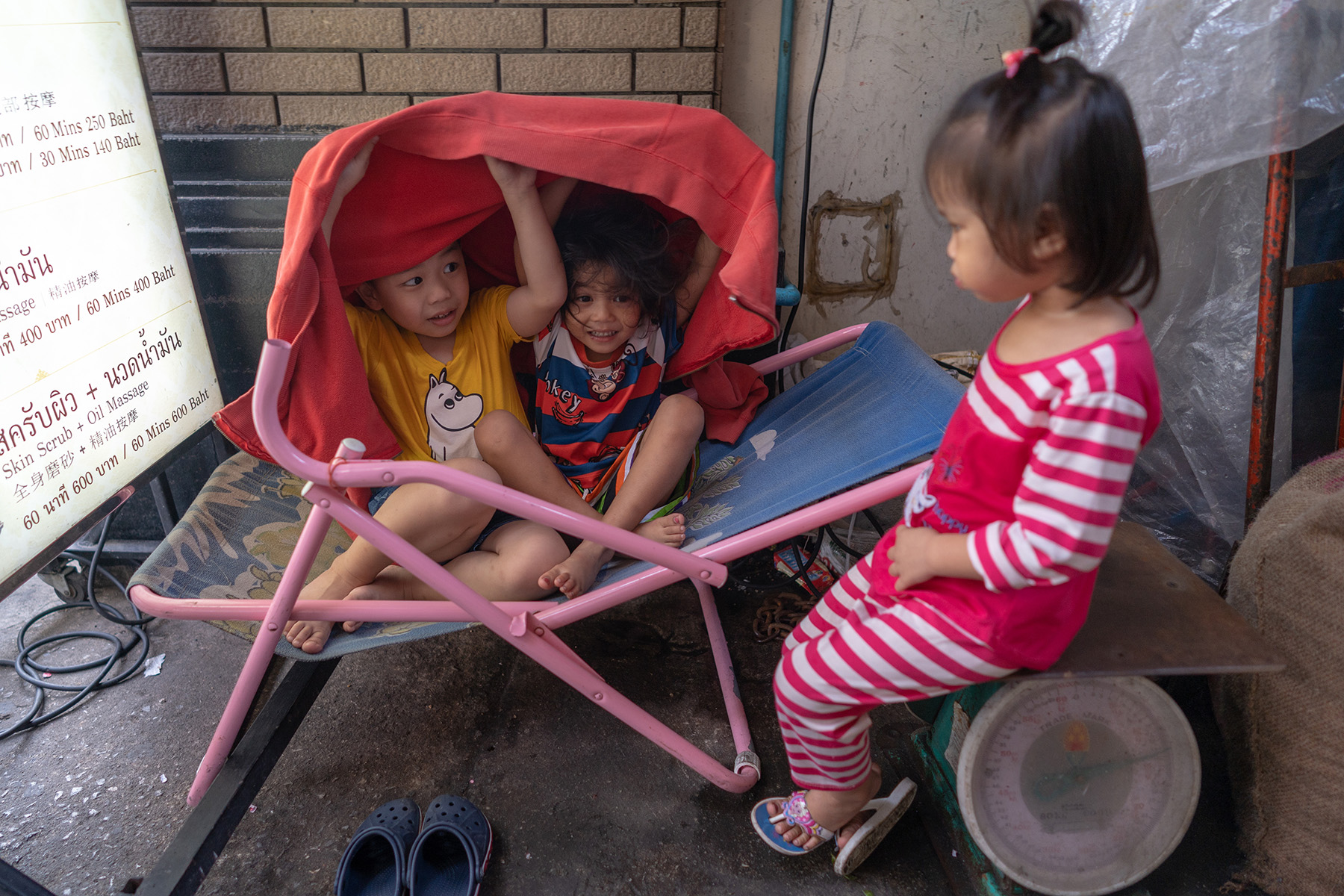
Babysitters usually look after children on a more informal or ad hoc basis (e.g., you want to go out for an evening). While most will only babysit for a few hours, some may be happy to work longer hours if needed.
Rates for babysitters can vary, with some charging by the hour and others charging a flat rate for a set amount of time. However, on average, you can expect to pay between ฿170–300 an hour.
Childcare provided by an employer
Employers are not legally obligated to provide childcare support for working parents. As such, only 15% of private companies in Thailand do offer some provision, most of which is aimed at children aged 0–3.
For example, some large corporations have on-site daycare facilities for young children, and others offer subsidies for childcare expenses as part of their employee benefits package. It is always worth checking with your employer to see how they can support your childcare needs.
How to find childcare in Thailand
Childcare services vary significantly across different parts of Thailand. The best way of finding suitable provisions is to enquire through sources such as:
- Your local municipality or community center
- Local schools in your area
- Online community networks (e.g., expat forums or Facebook)
- Online search engines and platforms (e.g., Kiidu)
When looking at options, consider all the relevant factors, such as costs, service hours, and activity schedules. You should also ask other parents for their opinions; first-hand experience is extremely valuable and can help you make a more informed decision.
It’s also strongly recommended that you meet with the providers beforehand to gauge their suitability. You should schedule an appointment with the facility or professional childcarer before leaving your child with them.

How much does childcare cost in Thailand?
As mentioned, the cost of childcare in Thailand will vary depending on the type of care and the location. However, the general costs of private childcare in Thailand (2023) are:
- Nurseries – between ฿100,000 and ฿600,000 a year
- Preschools – between ฿200,000 and ฿600,000 a year
- Playgroups – between ฿250–1,000 a session (usually around 3–4 hours)
- Nannies – between ฿13,000 and ฿36,000 a month full-time
- Au pairs – between ฿4,000 and ฿6,000 a month living costs for a 30-hour week
- Babysitters – between ฿170–300 an hour
Family benefits and childcare allowance
Thailand offers families with children some benefits and tax breaks. For example, parents who have made at least 12 social security contributions in the last 36 months are entitled to a monthly child allowance. This benefit is ฿800 per child aged 0–6 and is available for up to a maximum of three children. If both parents are insured through social security, child benefits can only be derived from one person.
Some families with children with disabilities can apply for a monthly ฿1000 Disability Grant to cover living costs. To be eligible, you must be a Thai citizen or permanent resident, and your child must register for a disabled person ID Card.
Low-income families can get additional support through the Child Support Grant (CSG). This scheme provides an extra ฿600 per month for families with a combined annual income of up to ฿100,000.
All families in Thailand have a tax allowance of ฿30,000 per child, which enables them to deduct these costs from their annual tax bill.
What if my child needs healthcare in Thailand?
In Thailand, children generally have free access to healthcare services. If you are a Thai citizen, your kids can receive medical care through the Universal Healthcare Coverage (UHC) system. This includes family doctors (GPs), pediatricians, basic dental care, a range of specialists, and some hospital treatment. Working expats can receive subsidized healthcare via social security.
If you don’t have access to public healthcare services or want to receive more comprehensive medical treatment, you can take out private health insurance.
How to become a childcarer in Thailand
There are various routes you can take to become a childcarer in Thailand, depending on your specific goals. For example, if you want to set up a daycare facility, you will need to follow all of the general procedures for starting a business. This includes getting a license from the Children’s Authority in your local area and ensuring all staff are fully trained and have clean criminal records.
If you want to work in childcare or become a nanny, there are plenty of childcare training courses that can help you start your career. Those looking for a higher level of professionalism can also pursue a degree in Early Years Care or Early Childhood Education.
Once you’ve completed training, you can apply for a salaried job or register as an independent contractor or freelancer. If you choose the latter option, you must follow strict regulations regarding business taxes and social security contributions.
Useful resources
- Department of Children and Youth – the government department that oversees childcare in Thailand
- Social Security Office (SSO: สำนักงานประกันสังคม) – the government agency responsible for childcare and disability benefits in Thailand
